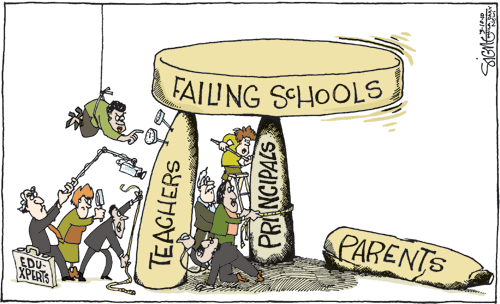Corruption is one of the biggest challenge that world is facing today, developing and under developed countries are more prone to corruption because of lack of knowledge and poverty. Lack of knowledge is one of the major reason for corruption in developing and third world countries and often investment in education is considered as the best investment for the development of a nation so that people can understand their rights. Our country India is also a developing country and needs a lot of attention on infrastructure, teacher training and innovation. Out of the three things mentioned above first two can be provided by the governments and other agencies but the problem is the third factor that is innovation.
Innovation is finding the most effective solution to a problem that is not pre-existing. Innovation cannot be provided through training and other means, it can only be developed over a period of time under a given situation. Here those teachers comes into picture that are less motivated and less interested in their jobs and because of this they are unable to bring innovation and enthusiasm in their teaching. Teaching is a job that requires knowledge, skills, emotions and motivation. As per a survey conducted it has been found that 65% of the teachers in India are not happy with their jobs and this number has increased from last survey where the count was 53%. In such a case it is hard to expect innovation from teacher and this is not a good sign for the transformation and growth of education sector.
Why teachers are not performing?
As per the survey conducted teachers has sited three major reasons for disliking the job.
- Ban on corporal punishment because of which teachers are unable to use physical punishment as a method to teach.
- No detention policy, under this policy students cannot be detained in a class uptil 8th standard. Because of this even under performing students are promoted to higher classes leading to further pressure and failure.
- Pressure from parents, this can be better understood from example below. Malleshappa S, a head master at a government high school in Hassan, said, “Just a week back I had to face a very humiliating situation – I had to apologise to a Class 8 student.
“The boy was disturbing the class, so I made him stand in front of the blackboard for a while. Next day, I had to face the ire of his parents and the so called leaders of the village. And then I had to apologise to him,”.
What we are expecting from our teachers is only possible if we give our teacher a free hand to decide their teaching techniques and teachers must also use not only mental but their emotional skills while dealing with children so that both student and teacher can build a relation that can produce incredible results.
